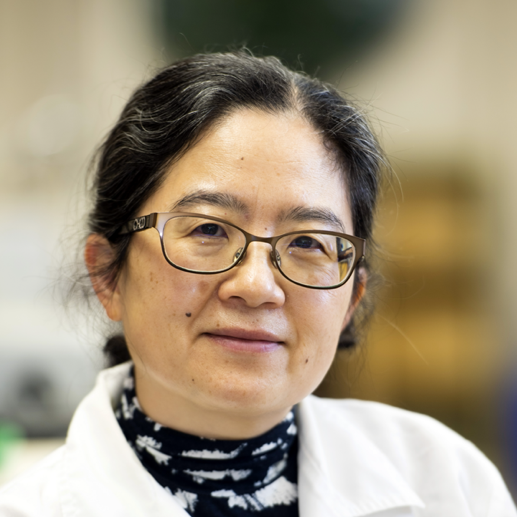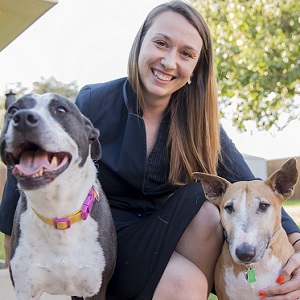You’re ready to take your work and research with animals to the next level. UBC’s graduate programs in Applied Animal Biology will get you there. This is where your learning will contribute to the growing body of knowledge in the areas of animal physiology, behaviour, welfare, and management of livestock, aquaculture, and wildlife species. It’s work the world needs. And this is the place to start.
PhD: Applied Animal Biology – Doctor of Philosophy – Postgraduate / Graduate Degree Program – UBC Grad School
MSc: Applied Animal Biology – Master of Science – Postgraduate / Graduate Degree Program – UBC Grad School
What you need to know
UBC is uniquely equipped to offer you a rich and well-rounded graduate degree in Applied Animal Biology. After all, we’ve been honing our expertise for over a century: The Faculty of Agriculture (now LFS) was one of UBC’s three founding faculties back in 1915, with Animal Husbandry as one of Agriculture’s first four programs. Still today, our MSc and PhD programs benefit from state-of-the-art on-campus teaching and research facilities, as well as off-campus research facilities like: the UBC Dairy Education and Research Centre in Agassiz; shared research facilities at Fisheries and Oceans Canada at West Vancouver; and Agriculture and Agri-Food Canada. These collaboration-rich graduate programs connect you with colleagues in other UBC graduate programs such as Zoology, and with experts working with agencies such as Agriculture and Agri-Food Canada, Fisheries and Oceans Canada, Canadian Wildlife Service and the Society for the Prevention of Cruelty to Animals.
The Applied Animal Biology program (formerly Animal Science) offers opportunities for advanced study and research on animals under human care.
Students interested in improving the lives of animals have the opportunity to complete a MSc or PhD through the UBC Animal Welfare Program.
Students interested in applied and basic aspects of cattle reproduction and the interrelations between health, behaviour and nutrition are welcome to apply for the MSc and/or PhD in Applied Animal Biology (Animal Reproduction Laboratory).
The UBC Animal Welfare Program is one of the largest and most respected programs in the world in the field of animal welfare science. Since its inception in 1997, the program’s research has led to improvements in the lives of animals in British Columbia and around the world. The mission of the program is to improve the welfare and humane care of animals in agriculture, research, companionship and other areas through active efforts in research, education and public outreach. For additional information view the UBC Animal Welfare website.
Graduate training in applied animal biology normally involves a combination of courses in both basic and applied sciences, with research leading to a thesis or dissertation. Students are expected to publish their research results in relevant leading international refereed journals. Coursework selected in consultation with the student’s supervisory committee includes graduate courses in areas relevant to each student’s research.
Applicants to the Applied Animal Biology graduate programs should have an academic background within the minimum academic requirements listed by the Faculty of Graduate and Postdoctoral Studies.
Master of Science
The MSc program requirements are as follows:
Completion of the MSc program requires a thesis (12 or 18 credits) plus coursework, for a total of 30 credits. With a 12-credit thesis, students can include a maximum of 6 credits of senior undergraduate courses. With an 18-credit thesis, students can include a maximum of 3 credits of senior undergraduate courses.
Students who are planning a professional career will typically enrol in the 12-credit thesis option. The 18-credit value option requires a more intensive research experience and is more appropriate for students considering the PhD program or a research career. The thesis credit decision should be determined in consultation with the student and research advisor at the start of the program.
Additional coursework may be recommended upon consultation with the student’s supervisory committee.
PhD
The PhD program requirements are as follows:
- coursework will be selected in consultation with the student’s supervisory committee
- students are required to take a comprehensive examination
- completion of a research thesis demonstrating ability to conduct significant and original scientific research
Coursework
Coursework is selected in consultation with the student’s supervisory committee, and includes graduate courses in animal science and from other areas relevant to each students research.
Faculty Members

Leluo Guan
Professor, Applied Biology
Canada Research Chair (Tier 1) in Animal Functional Genomics and Microbiome

Amelia MacRae
Lecturer, Applied Biology

Andrea Frommel
Assistant Professor, Applied Biology

Alexandra Protopopova
Associate Professor, Applied Biology (Animal Welfare Program)

Marina von Keyserlingk
Professor, Applied Biology (Animal Welfare Program), and Director, UBC Dairy Education and Research Centre
NSERC Industrial Research Chair in Animal Welfare

Daniel Weary
Professor, Applied Biology
NSERC Industrial Research Chair in Animal Welfare

Ronaldo Cerri
Professor, Applied Biology
Research Facility
Dairy Education and Research Centre. This centre is unique in Canada and is one of the largest in the world, providing state-of-the-art research facilities for developing and adapting new technologies relevant to the dairy industry. This facility contains 300 free stalls, a 24-cow milking parlour, office, laboratory and public reception areas. It helps meet the Faculty’s expanding programs in large-animal nutrition, reproduction and behaviour/welfare.
Collaborations
Adjunct Professors & Associates:
- Karen Beucheimen, Research Scientist, Agriculture and Agri-Food Canada (Lethbridge); Nutrition Adjunct Professor, UBC
- Shabti Bittman, Research Scientist, Agriculture and Agri-Food Canada (PARC Agassiz) – Agronomy; Adjunct Professor, UBC
- J. E. Elliott, Canadian Wildlife Service
- D. A. Higgs, Fisheries and Oceans Canada
- B. N. McLellan, BC Ministry of Forests
- Anne Marie de Passillé, Research Scientist, Agriculture and Agri-Food Canada; Adjunct Professor, UBC, Animal Welfare and Behaviour
- Jeff Rushen, Research Scientist, Agriculture and Agri-Food Canada; Adjunct Professor, UBC, Animal Welfare and Behaviour
- Doug Veira, Research Scientist, Agriculture and Agri-Food Canada, Kamloops, BC; Adjunct Professor, UBC, Animal Nutrition and Behaviour
The program is enriched through collaboration with colleagues in programs such as Food Science, Human Nutrition, Obstetrics & Gynaecology and Zoology, as well as agencies such as Agriculture and Agri-Food Canada, Canada Department of Fisheries and Oceans, Canadian Wildlife Service, the BC SPCA and various provincial government agencies.
Got Questions?
Whether you’ve got questions about your program, your experience or your next steps, Graduate Student Services is here to help. Get in touch.
Where Can a Graduate Degree in Applied Animal Biology Take You?
Graduates of the Applied Animal Biology MSc and PhD have developed careers in areas like:
- academic positions at universities or colleges;
- research positions at universities and government institutions;
- consultant positions;
- veterinary medicine;
- the animal feed manufacturing industry; and
- wildlife rehabilitation.
- Frances Flower (2006) completed her PhD in Animal Welfare at UBC and was promptly scooped up by Whole Foods to manage the day-to-day operations of the company’s animal welfare program at its Texas headquarters.
- With her PhD in Applied Animal Biology (2012), Elisabeth Ormandy founded a policy institute in the UK with the aim of changing the way animals are used in science.
Research Updates
Extreme Weather Impacts Wildlife Too
Extreme weather caused by climate change has had a devastating impact on the human residents of B.C, but the impact it has on wildlife is not well understood. Read more about how researchers of the Long-term Biodiversity Monitoring Program gather data to investigate what impact extreme smoke and heat has on the wildlife that call the UBC Farm home.
Learning to Coexist with Urban Wildlife
Feeding and taking pictures of wildlife can be extremely harmful for both animals and humans. Assistant Professor Kristen Walker shares how important it is to coexist with the urban wildlife.
Meet Peek-a-Moo, a Data Visualization Tool for Dairy Cattle
Meet Peek-a-Moo, the UBC Dairy Research Centre's new data visualization tool. The new tool helps researchers spot trends in everything from how much cows eat and rest, to where they spend their time, and even who else in the herd they hang out with!
